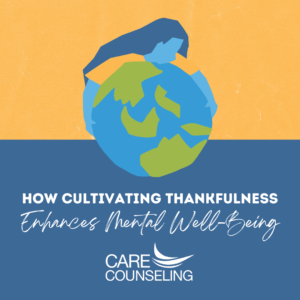How Cultivating Thankfulness Enhances Mental Well-Being

Gratitude is a simple yet profound emotion that holds the key to enhancing mental well-being and overall life satisfaction. When we cultivate thankfulness, we shift our focus from what we lack to the abundance of positive aspects in our lives. Let’s explore the power of gratitude, its positive effects on mental health, and practical strategies to incorporate gratitude into our daily lives for a happier and more fulfilling existence.
- Understanding the Essence of Gratitude
Gratitude is more than a polite expression of thanks; it is an authentic and heartfelt appreciation for the people, experiences, and blessings that enrich our lives. It involves recognizing and acknowledging the goodness around us, both big and small.
- Gratitude’s Impact on Mental Well-Being
- Positive Emotions: Practicing gratitude fosters positive emotions, such as happiness, contentment, and joy, which contribute to improved mental well-being.
- Resilience: Grateful individuals often exhibit greater resilience in the face of challenges, as they are better equipped to find silver linings and learn from difficult situations.
- Stress Reduction: Gratitude can act as a buffer against stress, as it shifts our focus from worries and anxieties to the positive aspects of our lives.
- Improved Relationships: Expressing gratitude enhances relationships by deepening connections and promoting a sense of appreciation and goodwill.
- Cultivating Gratitude: Practical Strategies
- Gratitude Journaling: Keep a daily or weekly gratitude journal, where you write down things, people, or experiences you are thankful for. This practice helps shift your focus to the positives in your life.
- Counting Blessings: Take a moment each day to mentally list three things you are grateful for. Doing this regularly rewires your brain to notice and appreciate the positive aspects of your day.
- Expressing Gratitude: Express your thankfulness to others through verbal appreciation, heartfelt notes, or acts of kindness. Showing gratitude not only benefits you but also uplifts those around you.
- Mindful Gratitude: During meditation or mindfulness exercises, focus on the feeling of gratitude and let it permeate your thoughts and emotions.
- Gratitude Jar: Start a gratitude jar where you write down moments of thankfulness on small slips of paper. Whenever you need a boost, take a slip from the jar and reflect on its contents.
- The Science of Gratitude
Studies in positive psychology have shown that practicing gratitude can lead to numerous mental health benefits. Grateful individuals experience higher levels of life satisfaction, reduced symptoms of depression and anxiety, and increased overall well-being.
- Gratitude in Challenging Times
Cultivating gratitude does not mean ignoring life’s challenges; instead, it helps us find hope and strength during difficult periods. By acknowledging what we are thankful for, we build resilience and a positive outlook even amidst adversity.
- Gratitude and Self-Reflection
Regularly practicing gratitude allows for self-reflection, enabling us to recognize patterns of thought and behavior that may hinder our ability to experience thankfulness fully. This self-awareness can lead to personal growth and positive change.
Conclusion
The power of gratitude lies in its ability to transform our perspective, enhance mental well-being, and create a positive ripple effect in our lives. By recognizing and appreciating the abundance of goodness around us, we shift our focus from what we lack to what we have.
Incorporating gratitude into our daily lives through journaling, mindful practice, and expressing thankfulness to others allows us to experience its profound effects on our mental health. Gratitude fosters positive emotions, builds resilience, reduces stress, and strengthens relationships.
As we embrace the practice of gratitude, let us remember that it is a journey of continuous growth and discovery. By cultivating thankfulness, we open ourselves to a world of abundance, joy, and contentment, enhancing our mental well-being and embracing life’s blessings with open arms.



























